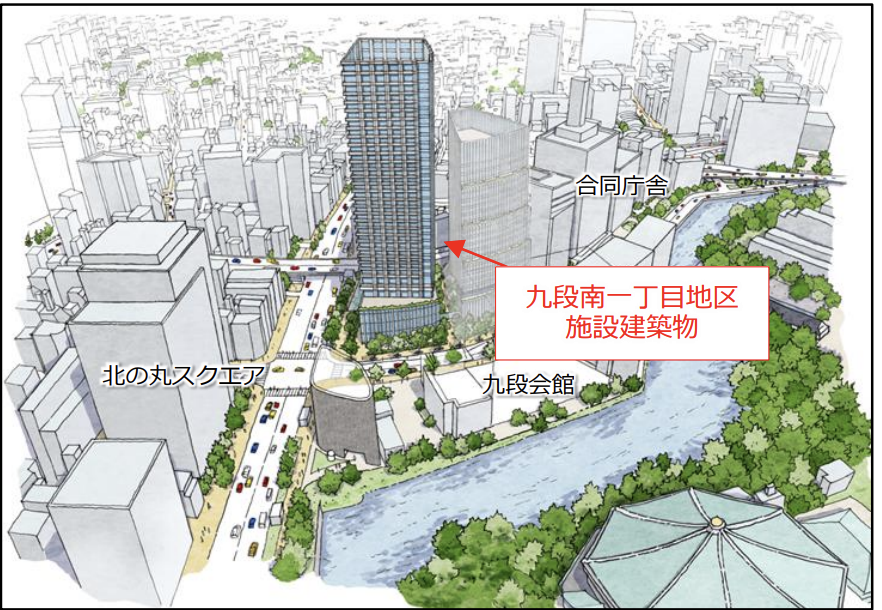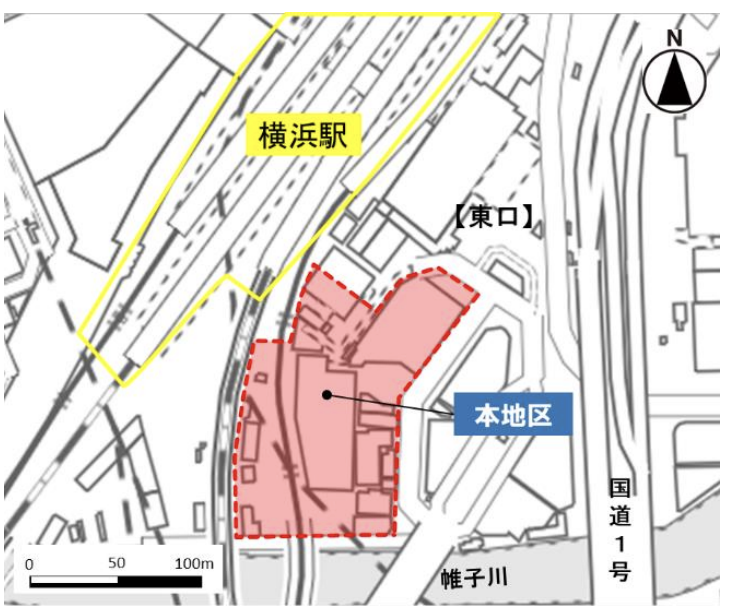In today's rapidly changing world situation and uncertain economic outlook, how to protect and grow your assets is an extremely important issue. In particular, many people may be concerned about the diminishing value of their assets due to inflation. Under such circumstances, interest in real estate as a "safe asset," especially Japanese real estate, is growing.
However, many people may have the image that real estate investment is risky. In this article, INA&Associates, as a real estate expert, explains in an easy-to-understand manner for ordinary consumers whether Japanese real estate can really be a "safe asset," while using data and market trends as the basis for the explanation. The presentation will include the advantages and disadvantages of real estate investment, as well as the market trends. The presentation will thoroughly explore the merits and demerits of real estate investment and its effectiveness as a countermeasure against inflation, based on expert knowledge.
What is a "safe asset" in the first place?
First, let's start with the definition of "safe assets. Generally speaking, safe assets are assets with extremely low risk of loss of principal and stable value. Typical examples include cash, savings, and government bonds.
When evaluating the nature of an asset, three perspectives are important : safety, liquidity, and profitability. Safety assets tend to be very safe while profitability tends to be low. The following table compares the characteristics of major safe and risky assets.
| Type of Asset | Safety | Liquidity | Profitability | Characteristics |
|---|---|---|---|---|
| Cash and deposits | ◎◎ Cash and deposits | ◎ Cash and deposits | △ | Guaranteed principal. Inflation vulnerable. |
| Government Bonds (JGBs) | ◎ ◎ ◎ ◎ ◎ ◎ ◎ ◎ ◎ ◎ ◎ ◎ | 0 | Highly creditworthy because they are issued by the government. | Highly creditworthy as issued by the government. |
| Gold | 0 | 0 | △ | Real asset. Resistant to inflation. |
| Stocks | △ (-) | 0 | ◎ | High risk/high return. |
| Real estate | 0 | △ | 0 | Middle-risk middle-return. Resistant to inflation. |
As can be seen from the table, real estate is an asset with middle-risk/middle-return characteristics that is more profitable than other safe assets and safer than risk assets such as stocks. In particular, its inflation-resistant nature is a major focus in the current economic climate.
Data! Current Status and Future Prospects of the Japanese Real Estate Market
So, what is the current situation of the Japanese real estate market? Let's take a look at the current state of the market and its future prospects based on the latest data.
According to a study by JLL (Jones Lang LaSalle), Japan's real estate investment market in 2024 was outstandingly strong by global standards, with investments reaching 3.85 trillion yen at the end of the third quarter of 2024, an astounding 41% increase over the previous year. This is well ahead of the pre-Corona Disaster levels of 2019.
| Item | Data |
|---|---|
| Investment as of the end of the third quarter of 2024 | 3,850 billion yen (+41% YoY) |
| Full-year investment forecast for 2024 | Approx. 5 trillion yen |
This booming market is supported by the strong appetite for investment by domestic investors as well as the recovery of capital inflows from overseas investors. The social stability of Japan with low geopolitical risk and the sense of affordability due to the weak yen have become major attractions for foreign investors.
In particular, the investment ratio in the office sector has been recovering, and this trend is expected to continue through 2025 and beyond. Despite some temporary concerns due to the spread of remote work, demand for quality office space remains strong and is being reevaluated as a stable source of income.
Three Reasons Why Japanese Real Estate Can Be a "Safe Asset
Why is the booming Japanese real estate market a "safe asset"? The reasons can be summarized in the following three points.
1. Effectiveness as an inflation hedge
One of the biggest concerns in today's economy is inflation. As prices rise and the value of cash declines in real terms, the question arises as to how to protect one's assets. This is where real estate, a physical asset, can be a very effective means of hedging against inflation.
Maintaining and Increasing Asset Values
During times of inflation, the asset value of real estate tends to increase along with prices. The risk of diminishing value, as is the case with cash deposits, is low, and asset preservation effects can be expected.
Increase in rent income
Rent tends to rise in line with price increases. This ensures a stable cash flow even during inflationary times, thereby increasing profitability.
Reduction of Debt Burden
In many cases, real estate investments involve loans from financial institutions. When the value of money declines due to inflation, the benefit is that the burden of repaying loans is substantially reduced.
2. Stable cash flow and high profitability
The major attraction of real estate investment is the stable cash flow in the form of rental income. As long as there are tenants, a stable monthly income can be expected, providing a foundation for long-term asset building.
It is also characterized by its high profitability compared to other safe assets. With yields on government bonds and time deposits remaining at low levels, real estate investment is one of the few investment methods that can target both income gains (rental income) and capital gains (profit on sale).
3. Inheritance and tax-saving measures
Real estate tends to be valued lower than cash or securities for inheritance tax purposes, making it a very effective inheritance tax measure. In addition, real estate income can be aggregated with other income, and by recording depreciation and other expenses, income tax and inhabitant tax savings can be expected.
Risks and Cautions of Real Estate Investment
Of course, there are risks involved in real estate investment. In order to maximize its aspect as a safe asset, it is essential to properly understand these risks and take appropriate countermeasures.
| Types of Risks | Contents | Countermeasures |
|---|---|---|
| Vacancy risk | No tenants can be found and rental income cannot be earned. | Selection of location and property, appropriate rent setting, and reliable management company. |
| Risk of rent decline | Rent declines due to changes in the surrounding environment or building deterioration. | Selection of area from a long-term perspective, regular maintenance. |
| Risk of rising interest rates | Loan interest rates rise, increasing the repayment burden. | Select a fixed interest rate and plan for early repayment. |
| Disaster Risk | Buildings are damaged by earthquakes or floods. | Purchase fire and earthquake insurance. |
| Liquidity Risk | When you want to sell, you cannot find a buyer immediately. | Selection of areas and properties in high demand. |
It is not easy for an individual to manage all these risks. That is why choosing a reliable real estate expert as your partner is the most important key to a successful real estate investment.
Summary: Japanese real estate can be the "strongest safe asset" in cooperation with a specialist.
In this article, we have explained from various perspectives how Japanese real estate can be a safe asset. In conclusion, Japanese real estate is a very attractive asset that is resistant to inflation and can be expected to provide stable income. Especially in the current economic climate, its value is increasing.
However, in order to maximize its potential, an appropriate strategy based on professional knowledge and experience is essential. From property selection to financial planning, management and operation, and exit strategies, by working together with a trusted partner, real estate investment is more than just asset management; it can become an "asset" that enriches your future.
INA&Associates offers optimal real estate investment plans tailored to each client's situation and goals.
Frequently Asked Questions (Q&A)
Q1. How much personal funds do I need to start real estate investment?
A1. It depends on the price of the property and the financing conditions of the financial institution, but in general, it is easier to obtain financing on favorable terms if you have about 10-20% of the property price as personal funds. However, depending on the property, there may be cases where you can start with less personal funds, so please consult with us first.
Q2: Which do you recommend, properties in rural areas or properties in central Tokyo?
A2. Each has its own advantages and disadvantages. Although prices are higher in central Tokyo, rental demand is stable and asset values tend not to decline. On the other hand, in rural areas, it is easier to find properties with high yields, but you need to consider vacancy risk and the impact of population decline. We will suggest the most suitable area according to your investment strategy.
Q3. Do I need to do the management work myself?
A3. No, you do not have to. By outsourcing to a reliable management company, you can leave all the complicated management tasks to us, such as tenant recruitment, rent collection, complaint handling, and building maintenance. We also provide high quality management services.

Daisuke Inazawa
Representative Director of INA&Associates Inc. Based in Osaka, Tokyo, and Kanagawa, he is engaged in real estate sales, leasing, and management. He provides services based on his extensive experience in the real estate industry. Based on the philosophy that “human resources are a company's most important asset,” he places great importance on human resource development. He continues to take on the challenge of creating sustainable corporate value.

.png)













